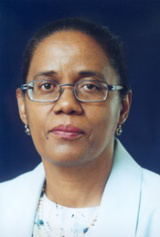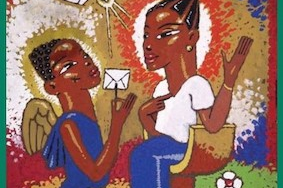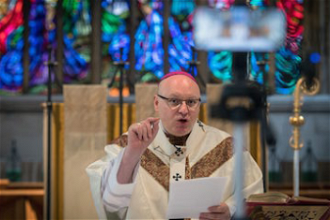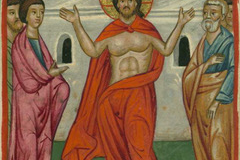CAFOD lecture: Claudette Werleigh calls for holistic approach to aid

Claudette Werleigh
Protecting human dignity, says Haiti’s former Prime Minister Claudette Werleigh, should be the underlying principle that guides the provision of foreign aid. Rebuilding a nation is as much about restoring human dignity as it is about re-establishing infrastructure and securing health provision.
Speaking at the Pope Paul VI Memorial Lecture 2010 organized by CAFOD at the Emmanuel Centre, Westminster, on Friday, Werleigh, who is now Secretary General to Pax Christi International, spoke of the situation in Haiti where earthquake and hurricane have resulted in thousands of deaths and caused wide spread devastation.
About 400 supporters attended the event, including Bishop John Rawsthorne, Bishop of Hallam and Chair of CAFOD, Bishop Patrick Lynch, Auxiliary Bishop in Southwark, and Bishop William Kenney, Auxiliary in Birmingham. The evening was chaired by Channel Four news presenter Jon Snow. Reflecting on her recent visits to Haiti, Werleigh spoke of the need for NGOs to work in partnership with local institutions, empowering the people of Haiti to participate through Consultation, in the decisions that determine the country’s recovery and development. Demonstrating trust, Werleigh says, plays an important part in recognising the dignity of others, and is a key factor in the international development process. Greater consultation will allow a more sustainable, deeply rooted process of recovery.
In harmony with a recent paper published by CAFOD, Tearfund and THEOS entitled Wholly Living, A new perspective on international development, Werleigh described a vision where a country’s wellbeing is measured not in purely economic terms, but is signified by more holistic signs of “human flourishing” such as productivity, creativity, and relational existence. The relational quality of our likeness to God, reminds us that we exist in relationship with God partly through our relationships with one another. Werleigh calls us to remember our relational likeness to God and to each other, by drawing from the unifying nature of our humanity. We have a need to provide, to protect and to give generously which can go beyond the boundaries of our own families, and extend into the global community.
Warleigh recounted a story from her own experience to support the principle of global oneness. She remembered a day in 1975 when it had rained heavily in Northern Haiti, and as a teenager she had taken shelter with friends, under the thatched roof of a poor farmers hut. The farmer, exemplifying the welcoming of strangers, had prepared hot coffee for Warleigh and her friends. During the process of preparing the drink, the farmer was heard to speak softly to himself. Warleigh listened and heard his conversation with God “I give thanks to you dear Lord for this rain. Rain, that is bringing me trouble by washing away my crops, will bring joy and relief to others.”
The prayer of the poor farmer, making coffee for strangers just as months of his hard work was being washed away by the rain, taught Warleigh a truth that she says can be applied anywhere in the world. In the midst of his calamity the farmer continued to welcome and serve his neighbour. And inversely, Warleigh the girl who received the hot coffee, realised the farmers suffering, in the midst of her own comfort. That farmer will not have known then that he was serving coffee to a future prime minister of his country. Neither of them would have known then that she would one day remember him again to an audience also taking shelter from the rain in London, at a time when the people of his country were being exposed to cholera.
Catastrophic disasters through the very devastation they cause, destabilise established systems. This can result in the formal and informal reconstruction of new ways of living. Because it does not depend solely on the material, quantitative system of monetary economics, the new principle of “Human Flourishing”, has the chance to develop, she said. People have the chance to reconstruct our accumulative, acquisitive approach to life and turn it outwards, to develop methods of relational giving. This does not need to apply solely to the extremely complex and pressured situations that arise when the earth has been literally shaken up by an earthquake. We are able to practice the methods towards salving and reconciling our relationships, in our daily living in our immediate environments. Wherever we are, home or Haiti, we can turn to our neighbour and provide warmth in the midst of rain, Werleigh concluded.





















